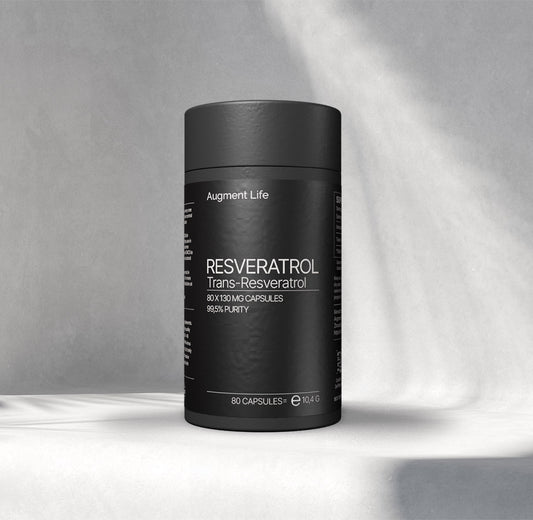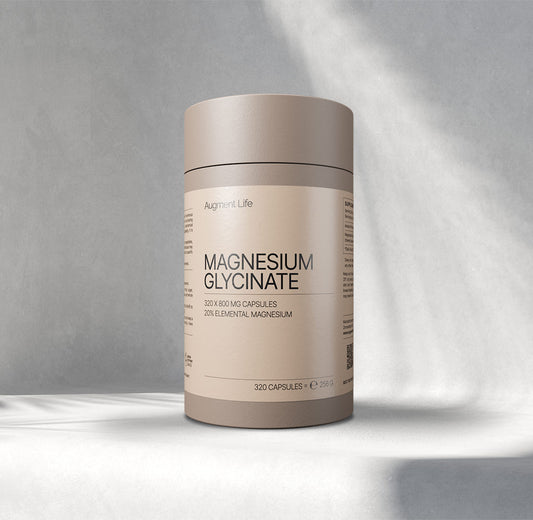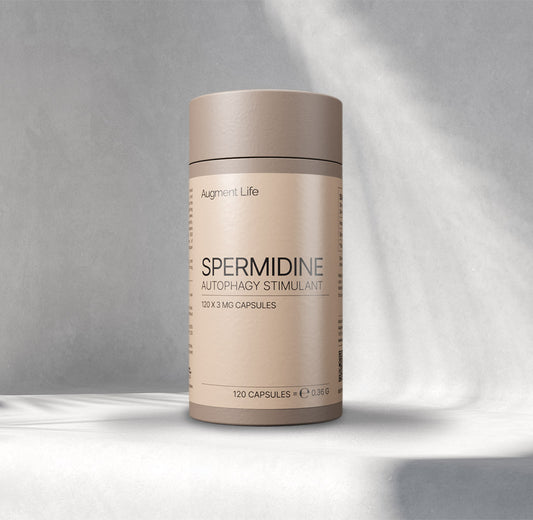Is aging a steady process, or does it happen in rapid spurts? Recent research from Stanford Medicine has sparked interest of the longevity community by challenging the traditional view of aging as a linear process. It reveals that our bodies don’t age at a consistent rate. Instead, we go through "aging spurts" where quick changes happen, most notably around the ages of 44 and 60. These findings have sparked a new focus on understanding how we can better manage our health as we age.
Ready to learn more about what happens during to us as we age and how to optimize your health? Keep reading and find out how to support longevity with lifestyle choices and supplements like resveratrol, berberine, spermidine, and curcumin!
Is aging linear?
Recent Stanford Medicine research on aging made a lot of headlines and noise, not just in the longevity world, but among everyone. After all, we all age, and most of us would like to know how not to. Shen et al. (1) published an interesting clinical study at the beginning of 2024 in Nature, highlighting a claim that was going around for a couple of years now. Namely, it turns out that the aging process is not linear as was traditionally thought.
Linear aging is a concept which refers to aging at a consistent steady rate, which could be predictable. It is defined by some key factors:
- Cumulative damage: Aging is driven by the accumulation of cellular and molecular damage, such as oxidative stress, DNA damage, and loss of tissue regeneration.
- Predictable decline: The rate of aging and functional deterioration remains constant, without sudden accelerations or decelerations.
- Uniformity across lifespan: The body's systems and functions degrade in a relatively uniform manner over time.
However, according to Shen et al., we go through something called aging spurts at specific ages, which induce periods of rapid aging.
When do people age the most?
The 2024 Nature study by the Snyder group followed the molecular patterns of aging of a large group of people over a longer period of time. Participants donated blood, saliva and other bodily samples to the researchers. The study found out that the markers of aging did not change linearly, but were mostly prominent at the ages of 44 and 60. This happened to both men and women, regardless of menopause.
So, what were the big quick changes that happened exactly at those ages and not all the time? The scientists were actually able to pinpoint the significant changes at both ages:
- At the age of 44: increase in markers of cardiovascular disease, lipid and alcohol metabolism changes.
- At the age of 60: increase in markers of immune regulation, oxidative stress, and carbohydrate metabolism, mostly connected to a decrease in kidney function, and an increase in blood glucose levels.
There were also significant changes in the number of fatty and connective tissue proteins, explaining the age-related skin aging and weight gain. This study might explain why people suddenly start feeling older "overnight". If we really aged with a steady rate, we almost wouldn't feel it from day to day.
Aging spurts
Faster aging at 44 and 60 is not an isolated scientific discovery. Even Shen et al. followed up on their previous study which also showed we age non-linearly. Another 2019 study, published in Nature Medicine (2), already showed similar significant changes in aging around the ages of 34, 60, and 78.
Many longevity researchers and physicians, such as David Sinclair and Venki Ramakrishnan, called these discoveries "provocative" and "useful" (3), agreeing that it makes sense in a physiological way and helps understand why we age how we age.
While these studies show we don't age linearly, they don't all tell us the exact age when we will rapidly start losing our youth. That also means that you shouldn't be scared about hitting any specific number of candles on your birthday cake, it means you should be taking care of your health span the best that you can.
Healthy aging starts much before those aging spurts, and it starts with good health choices! Read more about those below.
Signs that you are aging well
With all of this talk about aging, you must be asking yourself what are some signs of healthy aging. The process of aging definitely does not look the same for everyone, as aging depends on many factors, like:
- genetics,
- environmental influences,
- activity levels,
- social support,
- lifestyle choices, such as smoking and drinking alcohol.
Therefore, your chronological age may not be the same as your metabolic/biological age, which reflects the overall health status of your cells and your body.
You can be sure that you're aging in a healthy way by showing some of these signs:
- Having smooth and elastic skin,
- Maintaining muscle mass and range of motion,
- Having high energy levels,
- Flexibility and ability to play sports,
- Having a proper posture,
- Having good balance and coordination,
- Having a good memory.
How to slow down aging?
At different points of life, your body is slowly going to deteriorate, which is a normal and expected process. Make sure to stay active and healthy to slow down aging and the development of age-related diseases. Keep this advice in mind:
- Eat a balanced healthy diet, and watch out for your blood sugar and cholesterol levels.
- Stay active, and participate in cardio exercise or sports regularly.
- Cut down on your intake of alcohol and tobacco products.
- Get a healthy amount of sleep every night, and try to have a consistent sleeping routine.
You can also enhance your longevity journey by activating different metabolic pathways with dietary supplements. We wrote about the importance of several different pathways on our blog, which you can explore here:
- The Role of Autophagy in Health and Longevity
- How does insulin affect your lifespan?
- Are AMPK and mTOR pathways the molecular key to longevity?
Some of the key players in enhancing these pathways are anti-aging supplements you can get in our web shop, under the following links:
Reference list:
- Shen X, Wang C, Zhou X, Zhou W, Hornburg D, Wu S, Snyder MP. Nonlinear dynamics of multi-omics profiles during human aging. Nat Aging. 2024 Aug 14. doi: 10.1038/s43587-024-00692-2.
- Lehallier B, Gate D, Schaum N, Nanasi T, Lee SE, Yousef H, Moran Losada P, Berdnik D, Keller A, Verghese J, Sathyan S, Franceschi C, Milman S, Barzilai N, Wyss-Coray T. Undulating changes in human plasma proteome profiles across the lifespan. Nat Med. 2019 Dec;25(12):1843-1850. doi: 10.1038/s41591-019-0673-2.
- Austin, D. (2024) Your body ages rapidly in two 'bursts,' at 44 and 60. Here's how to prepare. National Geographic.












